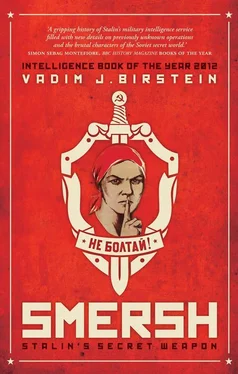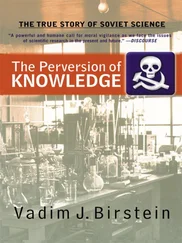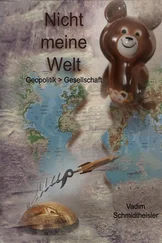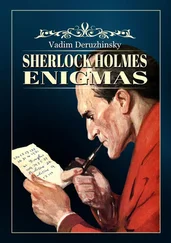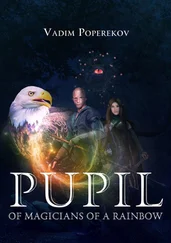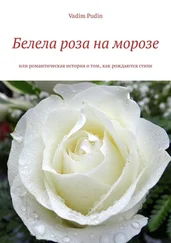1. Joseph E. Persico, Nuremberg: Infamy on Trial (New York: Viking, 1994), 32–34.
2. Arkadii Vaksberg, Stalin’s Prosecutor: The Life of Andrei Vyshinsky , translated from the Russian by Jan Butler (New York: Grove Weidenfeld, 1991), 101 and 134.
3. A report of the Commission of the Central Committee of the Communist Party to the Presidium of the Central Committee, signed by P. Pospelov and A. Aristov and dated February 9, 1956. Document No. V-15 in Reabilitatsiya: Kak eto bylo. Mart 1953–fevral’ 1956 gg. Dokumenty Presidiuma TsK KPSS i drugie materially , edited by A. Artizov et al., 317–65 (Moscow: Demokratiya, 2000) (in Russian).
4. Ibid., 343–4.
5. George Ginsburgs, Moscow’s Road to Nuremberg:The Soviet Background to the Trial (The Hague: Martinus Nujhoff Publishers, 1996), 95–115.
6. Edward R. Stettinius, Jr., Roosevelt and the Russians: The Yalta Conference (Garden City, NY: Doubleday & Co., Inc., 1949), 334.
7. Telford Taylor, The Anatomy of the Nuremberg Trials: A Personal Memoir (New York: Alfred A. Knopf, 1992), 63.
8. Ibid., 64.
9. Yurii Shcheglov, ‘Pered Nurenbergom…’ Kontinent , no. 120 (2004) (in Russian), http://magazines.russ.ru/continent/2004/120/shegl14-pr.html, retrieved September 9, 2011.
10. Aleksandr Zvyiagintsev and Yurii Orlov, Prokurory dvukh epoch. Andrei Vyshinsky i Roman Rudenko (Moscow: Olma-Press, 2001), 208–12 (in Russian).
11. On the arrest of the sixteen Polish leaders see Document Nos. 42-44 in Iz Varshavy. Moskva , 148–59.
12. Politburo decision P45/277, dated June 13, 1945. See text in ibid., 216.
13. Although many sources claim that General Okulicki was killed, medical documents in his prison file (a copy of the file was handed over to Polish officials in 1990) point to death from natural causes.
14. ‘On the inclusion in the list of main defendants,’ dated August 18, 1945. GARF, Fond R-9401, Opis’ 2 (Molotov’s NKVD/MVD Special Folder), Delo 103, L. 356–7.
15. ‘A list of War Criminals Who Should Be Tried by the International Tribunal,’ dated August 27, 1945. GARF, Fond R-9401, Opis’ 2 (Molotov’s NKVD/MVD Special Folder), Delo 103, L. 330–6.
16. See, for instance, a transcript of Friedrich Jeckeln’s interrogation on December 14, 1945, http://www.nizkor.org/ftp.cgi/people/ftp.py?people//j/jeckeln.friedrich/jeckeln-interrogation.1245, retrieved September 9, 2011.
17. GUPVI’s registration cards of Bernhardt and Richert in I. V. Bezborodova, Generaly Vermakhta v plenu (Moscow: Rossiiskii gosudarstvemmyi gumanitarnyi universitet, 1998), 61 and 140 (in Russian). In 1947, Generals Klammt and Traut were sentenced to a 25-year imprisonment in labor camps; in October 1955, they were repatriated to Germany. Their cards in ibid., 99 and 146.
18. I will cite the Trial of the Major War Criminals Before the International Military Tribunal, Nuremberg, 14 November 1945 –1 October 1946 (Buffalo, NY: William S. Hein & Co., Inc.) as The Nuremberg Trial. The Nuremberg Trial , Vol. 8, 105, http://avalon.law.yale.edu/imt/02-22-46.asp, retrieved September 9, 2011.
19. Politburo decisions P46/238 and P46/240, dated September 5 and 6, 1945. Politburo TsK RKP(b)-VKP9b). Povestki dnya zasedanii. T. 3, 1940–1953, edited by G. M. Adibekov, 399 (Moscow: ROSSPEN, 2001) (in Russian). In April 1946, the new MVD Minister Sergei Kruglov replaced Merkulov in the Commission.
20. Politburo decision P47/131, dated September 21, 1945. Politburo , 409.
21. Yu. Zorya, ‘“Prokurorskaya diplomatiya” Vyshinskogo,’ in Inkvizitor. Stalinskii prokuror Vyshinskii (Moscow: Respublika, 1992), 208-88 (in Russian); N. Lebedeva, ‘Kak gotovilsya Nurenbergskii protsess,’ Mezhdunarodnaya zhizn’ , No. 8 (1996), 99–108 (in Russian).
22. Vaksberg, Stalin’s Prosecutor , 260.
23. Details, for instance, in Richard Overy, Interrogations: The Nazi Elite in Allied Hands, 1945 (New York: Viking, 2001), 41–42.
24. SMERSH. Istoricheskie ocherki i arkhivnye dokumenty , edited by V. S. Khristoforov et al., 322 (Moscow: Glavarkhiv Moskvy, 2003) (in Russian).
25. Vladimir Abarinov, ‘V kuluarakh dvortsa yustitsii,’ Gorizont , no. 5 (1990), 61–70 (in Russian).
26. Biography of M. T. Likhachev (1913–1954) in Petrov, Kto rukovodil organzmi gosbezopasnosti , 548.
27. SMERSH. Istoricheskie ocherki , 271.
28. Ibid., 325.
29. P. I. Grishaev and B. A. Solovov, ‘Domyslami nel’zya snyat’ ‘khrestomatiinyi glyanets’ s istorii Nyurenbergskogo protsessa,’ Gorizont , No. 5 (1990), 38–43 (in Russian).
30. Communication by Vladimir Abarinov, 1990.
31. Tupikov was in Nuremberg until January 1946. He left for Moscow and then escorted the Japanese arrestees to the trial in Tokyo.
32. Declarations written by Fritzsche and Raeder on October 18, 1945. The Nuremberg Trial , Vol. 1, http://www.yale.edu/lawweb/avalon/imt/proc/v1-08.htm, retrieved September 9, 2011.
33. G. M. Gilbert, Nuremberg Diary (New York: Da Capo Press, 1995), 7.
34. Erich Raeder, My Life , translated from the German by Henry W. Drexel (Annapolis, MD: US Naval Institute, 1960), 386.
35. Ibid., 386–7.
36. Minutes of the Vyshinsky Commission meeting on November 16, 1945, in Nataliya Lebedeva, ‘Neizvestnyi Nurenberg,’ Rodina , no. 6-7 (1991) (in Russian).
37. Vyshinsky’s telegram to Gorshenin, dated November 19, 1945, in ibid.
38. Cited in Overy, Interrogations , 204.
39. Anton Joachimsthaler, The Last Days of Hitler: Legend, Evidence and Truth , English translation by Helmut Bogler (London: Cassell & Co., 2000), 288; ‘Hans Fritzsche’ in Nazi Conspiracy and Aggression. Vol. II, Chapter XVI, 1035–52, http://www.nizkor.org/hweb/imt/nca/nca-02/nca-02-16-21-index.html, retrieved September 9, 2011.
40. Document No. 193 in Russkii Arkhiv , 15 (4/5), 281–2.
41. Echtmann’s testimony on April 27, 1953, quoted in Joachimsthaler, The Last Days , 238–9.
42. Hans Fritzsche, The Sword in the Scales , as told to Hildegard Springer, translated by Diana Pyke and Heinrich Fraenkel (London: Allan Wingate, 1953), 41.
43. The Nuremberg Trial , Vol. 6, 72, http://avalon.law.yale.edu/imt/01-23-46.asp, retrieved February 20, 2011.
44. Gilbert, Nuremberg Diary , 163–4.
45. The Nuremberg Trial , Vol. 17, 202, http://avalon.law.yale.edu/imt/06-28-46.asp, retrieved September 9, 2011.
46. Ibid., 203.
47. Ibid., 215.
48. Ibid., 215–6.
49. Ibid., 231.
50. Nikitchenko’s speech, http://avalon.law.yale.edu/imt/juddiss.asp, retrieved September 9, 2011.
51. Ingeborg Kalnoky and Ilona Herisko, The Witness House (Indianapolis: Bobbs-Merrill Company, Inc., 1974), 228–9.
52. Ellensburg Daily Record , September 26, 1953, 14.
53. Quoted in Abarinov, ‘V kuluarakh.’
54. Grishaev and Solovov, ‘Domyslami nel’zya snyat’ ‘khrestomatiinyi glyanets’, 41.
55. Quoted in Abarinov, ‘V kuluarakh,’ 68–69, and discussed in Francine Hirsch, ‘The Soviets at Nuremberg: International Law, Propaganda, and the Making of the Postwar Order,’ The American Historical Review 113, no. 3 (June 2008), 701–30.
56. Arkadii Vaksberg, ‘Zasluzhennyi deyatel,’ Literaturnaya Gazeta , March 13 (1989), 13 (in Russian).
57. I. F. Finyaev, ‘General-feldmarshal F. Paulus svidetel’stvuet,’ VIZh , no. 5 (1990), 52–54 (in Russian).
58. Report by Vyshinsky and Kruglov with an attached draft of Decision of the USSR Council of Ministers, dated March 29, 1950. Cited in Arkhiv noveishei istorii Rossii. T. 1.’Osobaya papka’ I. V. Stalina , edited by V. A. Kozlov and S. V. Mironenkom 307 (Moscow: Blagovest, 1994) (in Russian).
Читать дальше
